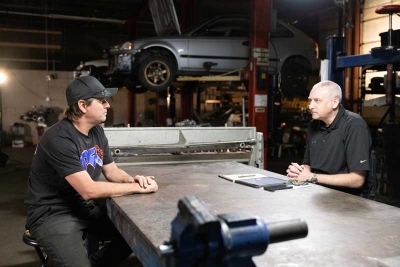EPA app hits small speed store with $ 18,000 fine
[ad_1]
While the Environmental Protection Agency (EPA) targets and strengthens law enforcement against automotive aftermarket companies through its national compliance initiative, the federal agency is hurting legitimate companies in the industry of motorsport.
Despite the EPA’s non-binding and informative claims that it does not target aftermarket companies that produce parts for dedicated racing cars, the EPA continues to pursue business based on guesswork, impose penalties. disproportionate fines and to pursue legal actions in the opposite direction.
Recently, the EPA fined PFI speed, a small speed store in Colorado, for selling only 37 Hondata S300 over a two-year period. The fine was imposed after the owner of the company Brent Leivestad complied with an EPA request for details of the company’s sales.
Without any further contact from the EPA, Leivestad was shocked to receive a letter accusing the store of selling illegal products. The letter included a fine of $ 18,000 which, if not paid within 30 days, could reach $ 180,000.
“I was stunned. I couldn’t even believe it, â€said Leivestad. “I’m a speed store and I sell racing parts — I didn’t know it was wrong. I did not understand the basis of the EPA claim, did not go to any lawsuits or talk to anyone about the EPA and the threat to “settle and pay within 30 days or other “sounded like a real shakedown intended to deny my rights.
To protect the motorsport industry from further EPA breaches, Performance racing industry (PRI) calls on the racing industry and enthusiasts to unite and urge Congress to pass law recognizing the protection of powersports (RPM). The bipartisan bill will clarify that it is legal to convert city vehicles into dedicated racing cars and that companies can legally produce, market and install racing products.
“There are thousands of legitimate powersports companies that are at risk of being overtaken by the EPA,†said Dr. Jamie meyer, president of the PRI. “The EPA puts these companies — which are usually small, local, less sophisticated stores — in situations where they must face the full might of the federal government. The EPA does nothing to validate its enforcement efforts, and these small businesses have no choice but to comply. “
The EPA, responsible for enforcing the Clean Air Act (CAA), a 1970 law that regulates motor vehicles on streets and highways across the United States, has fined companies such as PFI Speed ​​for …
[ad_2]

